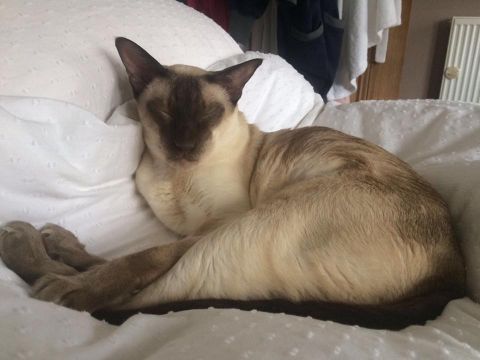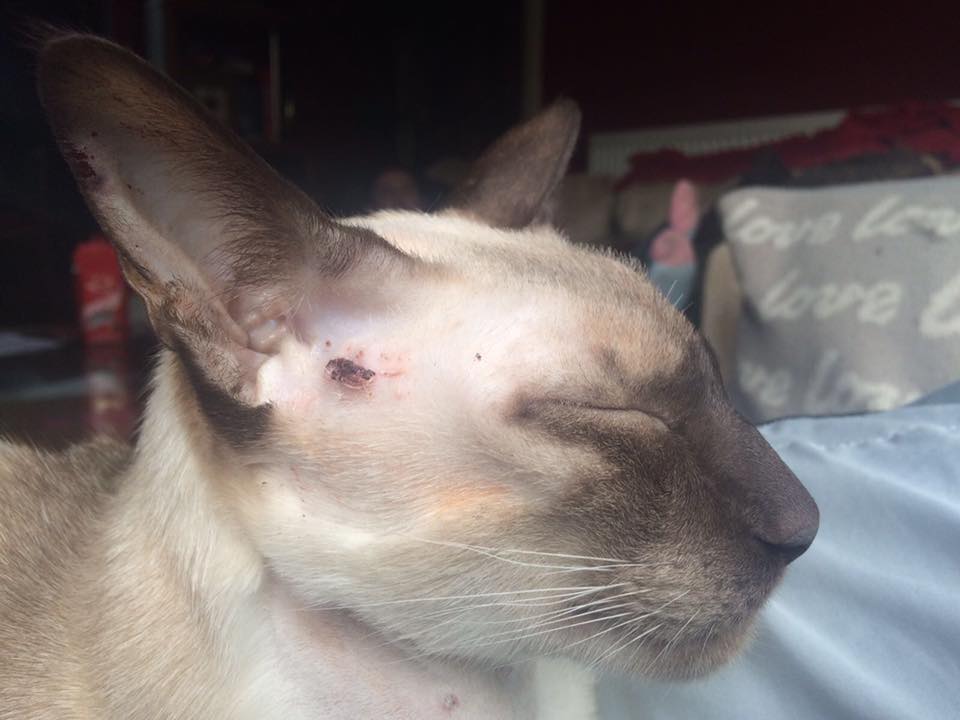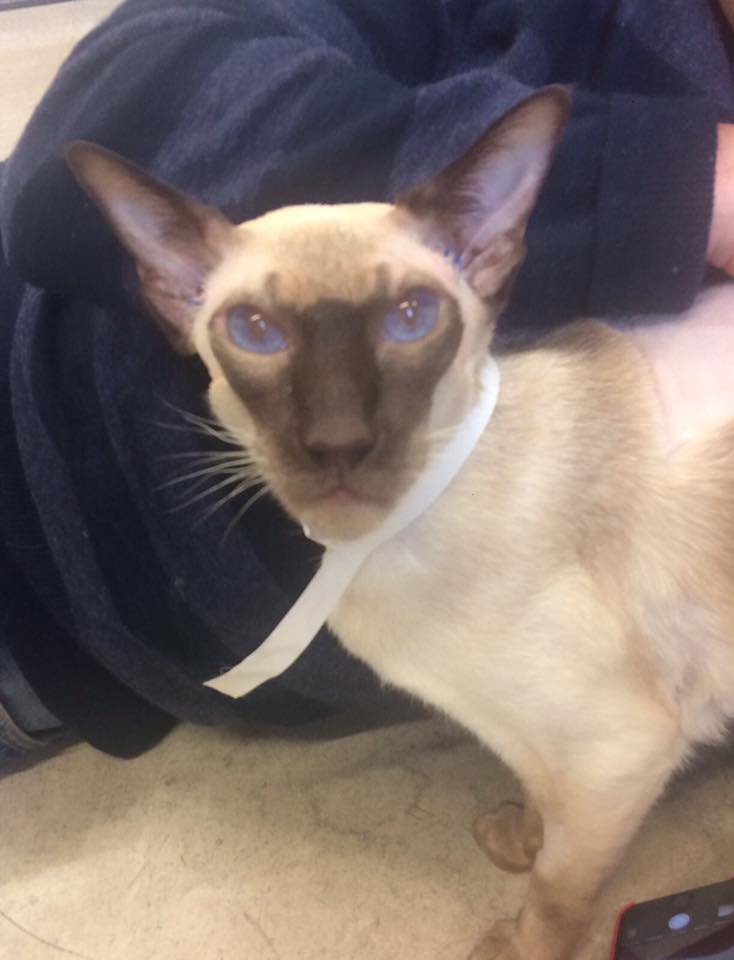Our March Brave Pet of the month is Che!

Che is one of our vets, Laura's cat. He was diagnosed with diabetes in November 2016. Unfortunately, it was found that the diabetes was caused by a rare condition called acromegaly.
Acromegaly causes the body to produce excess Growth Hormone due to a benign tumour in part of the brain (the pituitary gland).
Growth Hormone cause insulin resistance, leading to diabetes that cannot be controlled easily with insulin - often the first indication of this problem.
If left untreated, excess Growth Hormone leads to lots of other problems in the body also. These include excess growth of cartilage, causing joint pain; breathing problems due to abnormal tissue development in the throat; heart failure; kidney failure and uncontrolled diabetes. If the tumour grows very big it can lead to blindness and seizures.
Acromegaly is rarely diagnosed, although recent studies have suggested that 1 in 4 cats with diabetes may have this disease.
There is limited information available on how to treat this disease. In humans, the pituitary tumour is surgically removed. However, cats have such a small pituitary gland (only 4mm across) that surgery involves removing the whole gland, not just the tumour.
The Royal Veterinary College in London is the only place in the UK which is able to offer surgery to potentially cure this disease. There are many risks involved with the surgery and there are currently no alternative treatment options to cure the disease.

Che was at the Royal Veterinary College for 10 days. He had brain surgery to remove his pituitary gland and he then spent 3 days in intensive care. He has recovered well from the surgery and came home last week.
He will require hormone supplements for life, but will hopefully now go into diabetic remission. He is already much brighter than before the surgery and is very glad to be home.
We wish him a speedy recovery!






